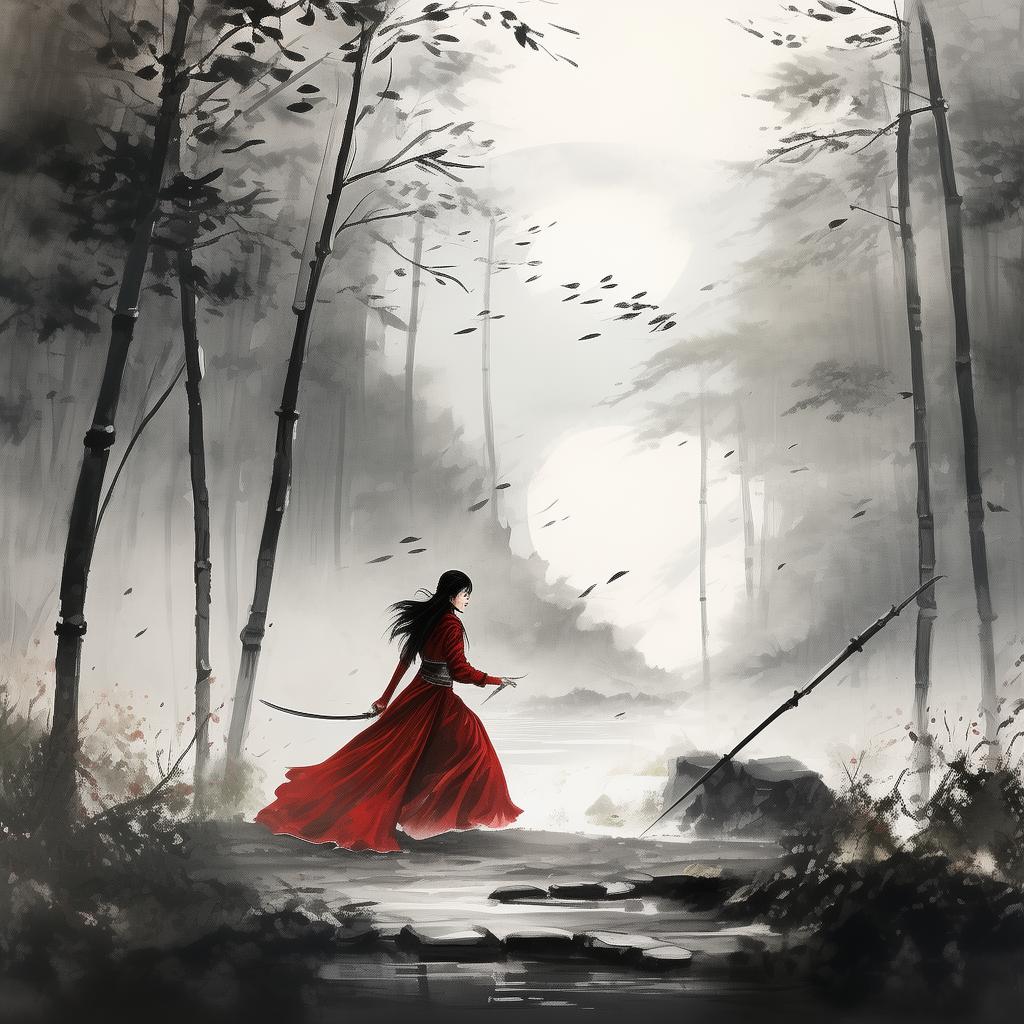The Dragon's Promise: A Martial Artist's Quest for Classical and Purest Power
In the heart of the ancient land of Wudang, where the mountains whisper secrets of ancient wisdom and the rivers flow with the essence of life, there lived a young martial artist named Ming. His name was as common as the wind that swept through the valleys, yet his spirit was as rare as the golden thread woven into the robes of the Wudang monks.
Ming's quest began with a promise—a promise he had made to his late master, who had taught him the art of Tai Chi. The promise was not of victory in battle, nor of mastery over the martial arts, but of a deeper truth. It was a quest for the classical and purest power that lay hidden within the ancient texts and legends of Wudang.
The Dragon's Promise spoke of an ancient scroll, bound in the scales of a mythical dragon, which held the secret to an ultimate power. This power was not one of brute force or speed, but of harmony, balance, and the understanding of the natural world. It was a power that could transform the martial artist into a guardian of peace, capable of healing wounds and mending broken spirits.
Ming's journey took him through the treacherous paths of the Forbidden Mountains, where the wind roared like a thousand dragons and the snowflakes danced like the whispers of the ancestors. He encountered masters of old who tested his resolve, and scholars who shared with him the wisdom of the ages. Each encounter brought him closer to the truth he sought.

One night, as the moon hung like a silver coin in the sky, Ming found himself in the ancient ruins of a forgotten temple. The air was thick with the scent of age and decay, and the stone walls seemed to pulse with the heartbeat of the earth itself. It was here that he discovered the scroll, entwined around a staff that seemed to hum with ancient energy.
With trembling hands, Ming unwound the scroll, revealing a series of intricate symbols that seemed to breathe with life. The scroll spoke of the Dragon's Promise, and of the three trials that one must face to unlock its power. The first trial was the test of spirit, the second the test of skill, and the third the test of heart.
Ming began his trials, facing enemies who were not of flesh and blood, but of his own fears and doubts. He fought through the shadows of his past, and the echoes of his failures, until he stood at the threshold of the second trial. Here, he was faced with a choice: to follow the path of the dragon, or to follow the path of the tiger.
The path of the dragon was one of harmony and understanding, while the path of the tiger was one of strength and dominance. Ming, who had always been drawn to the gentle flow of Tai Chi, chose the path of the dragon. He realized that true power lay not in the ability to overpower an opponent, but in the ability to understand them.
As he stepped onto the path of the dragon, Ming felt a shift within himself. The world around him seemed to change, and the very essence of his being was transformed. He could feel the energy of the ancient scroll pulsing through his veins, and he knew that he was on the right path.
The final trial was the test of heart. It was here that Ming faced his greatest challenge. He was forced to confront the greatest fear of his life—the fear of failure, of not living up to his master's expectations, and of not fulfilling the promise he had made.
In the depths of his fear, Ming found a wellspring of courage that he had not known existed. He realized that true power came not from the strength of one's muscles, but from the strength of one's heart. It was here, in the face of his greatest fear, that he unlocked the true power of the Dragon's Promise.
With a heart full of resolve and a spirit unbroken, Ming emerged from the trial, the scroll in his hands, and the power of the dragon within him. He returned to Wudang, not as a conqueror, but as a guardian, a protector of peace and harmony.
The Dragon's Promise had changed Ming forever. He had learned that true power lay in the ability to understand, to forgive, and to heal. And as he walked the paths of Wudang, his presence was felt by all who crossed his path. He was a guardian of the ancient arts, a beacon of hope in a world that needed healing.
And so, the story of Ming, the martial artist who sought the classical and purest power, would be told for generations to come. His legacy would live on not through the might of his sword, but through the strength of his heart and the wisdom he shared with all who sought to understand the true nature of martial arts.
✨ Original Statement ✨
All articles published on this website (including but not limited to text, images, videos, and other content) are original or authorized for reposting and are protected by relevant laws. Without the explicit written permission of this website, no individual or organization may copy, modify, repost, or use the content for commercial purposes.
If you need to quote or cooperate, please contact this site for authorization. We reserve the right to pursue legal responsibility for any unauthorized use.
Hereby declared.









